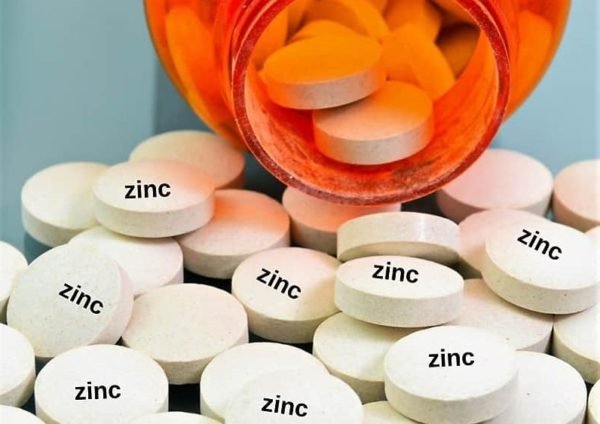Zinc chloride is a trace element that is required for hair & nail growth, immune function, carbohydrate metabolism, and sexual health. It is added to parenteral nutrition (PN) to prevent deficiency.
Zinc acetate is used to treat patients with Wilson's disease.
Zinc Chloride Dose in Adults
Parenteral nutrition treatment dose and required maintenance dose:
Note that the dosage described below refers to elemental zinc:
-
Acute metabolic states:
- 5 to 6 mg/day Intravenous.
-
Metabolically stable:
- 5 to 5 mg/day Intravenous
-
Stable with fluid loss from small bowel:
- 2 mg zinc/L TPN or 17.1 mg zinc/kg Intravenous (added to 1000 mL IV fluids) stool or ileostomy output
Note: Clinical response from the deficiency may take up to 6 to 8 weeks.
Zinc Chloride Dose in Children
Note: The clinical response may take 6 - 8 weeks.
Dose in the treatment of Parenteral nutrition, maintenance requirement:
Note: The doses here are mentioned in terms of elemental zinc. Patients with malabsorption and those with excessive losses like patients with prolonged diarrhoea, high-output fistula, and burns may require higher doses.
-
Age-directed dosing:
-
Infants over 3 months old:
- 50 mcg/kg/day intravenous.
-
Infants less than 3 months old:
- 250 mcg/kg/day intravenous.
-
Children:
-
- 50 mcg/kg/day intravenous to a maximum daily dose of 5,000 mcg/day
-
-
Weight-directed dosing:
-
Children and Adolescents over40 kg:
- 2,000 to 5,000 mcg/day intravenous.
-
Infants less than10 kg:
- 50 to 250 mcg/kg/day intravenous.
-
Children between 10 to 40 kg:
- intravenous administration of 50 to 125 mcg/kg/day with a daily dosage cap of 5,000 mcg
-
Pregnancy Risk Factor C
- Zinc is measurable in both cord blood and the placenta because it passes the placental barrier.
- The placenta regulates fetal concentrations.
Use zinc chloride during breastfeeding
- Breast milk contains zinc.
- Supplementation by mothers does not affect its concentration in breastmilk.
- Zinc concentrations decrease in the first six months of lactation.
Zinc Chloride Dose in Kidney disease:
- The manufacturer has not recommended any dose adjustment in patients with kidney disease.
- However, in severe renal impairment, the dose may need adjustment since it is primarily excreted via the kidneys.
- The patients with kidney disease are also at risk of aluminium toxicity.
Zinc Chloride Dose in Liver Disease:
The manufacturer has not recommended any dose adjustment in patients with lliver disease.
Side effects of Zinc Chloride:
- Dyspepsia,
- hypotension,
- jaundice,
- leukopenia,
- nausea,
- neutropenia,
- pulmonary edema,
- vomiting
Contradications:
Warnings and Precautions
- Renal impairment:
- Patients with renal impairment should use it with caution.
Zinc chloride: Drug Interaction
|
Dolutegravir |
Dolutegravir's serum levels may be lowered by zinc salts. Treatment: Dolutegravir should be administered at least 2hrs prior to or 6hrs after oral zinc salts. When taking oral zinc salts, provide the dolutegravir/rilpivirine combination product at least 4hrs prior to or 6hrs after. |
Monitor:
- Periodic serum copper and zinc levels should be measured in patients on parenteral or chronic oral therapy,
- Alkaline phosphatase,
- taste acuity,
- mental depression
How to administer Zinc chloride?
Solution for intravenous injection:
- It is administered after dilution in 100 mL or more of fluid.
Mechanism of action of Zinc chloride:
- Zinc chloride, a micronutrient, is essential for cell functions and carbohydrate metabolism.
- It is essential for good immunity, hair and nails, as well as sexual health.
Distribution
- It is found in the liver and skeletal muscles.
- The whole-body status of zinc is not represented by serum levels.
Protein binding:
- 55% is bound to albumin and 40% to alpha-1-macroglobulin
Excretion
- It is excreted primarily in the faeces.
International Brands of Zinc chloride:
- Tracefusin
Zinc Chloride Brands in Pakistan:
Zinc Chloride is not available in Pakistan.







